Troy Cassar-Daley shares the dark history that haunts his family
A FAMILY gathering to pay tribute to an sick loved one turned into one of the darkest days of Troy Cassar-Daley’s life — and it’s shadowed his indigenous family ever since.
Music
Don't miss out on the headlines from Music. Followed categories will be added to My News.
TROY Cassar-Daley can’t stop the tears falling as he tells the story of Shadows On The Hill.
He’s a great yarn teller, both in song and conversation, but this one has him choked up real bad.
It’s one of two new songs — the other so simply and appropriately titled Wouldn’t Change A Thing — on his wide-ranging career retrospective with the mischievous title Greatest Hits. More than 30 of the 42 songs have been No. 1s on the Australian country charts; some struggled to sell 300 copies when he was just starting out three decades ago.
They’ve all got a story to tell but Shadows On The Hill is a tough one to share.
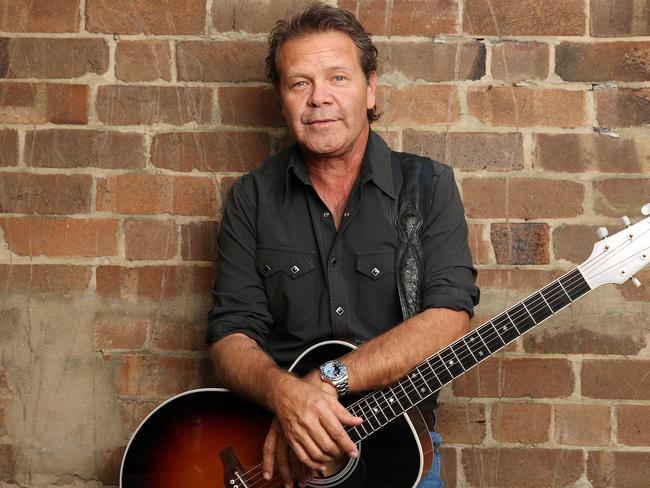
When his cousin Matt Carter was battling terminal cancer last year, Cassar-Daley gathered up his uncles and cousins and organised a weekend men’s trip to their traditional Gumbaynggirr Country, a bush camp near where he grew up in Grafton.
Sitting around the campfire, cooking the fish and turtles they caught from the nearby river, the uncles shared the story of a massacre of a local community in the 19th century.
“One of the uncles asked us if we ever wondered why our grandmother wouldn’t let us across the river up there. She would always sing out to all of us ‘Come back now, don’t go over there, stay over this side, there’s plenty of turtles and fish here,” Cassar-Daley says.
“That was apparently where this massacre happened up river. Just not a good place, didn’t feel good to her or anyone who went over there.
“This is no bulls … and I’m not trying to get all airy fairy on you but I am spiritual and when we sat down and started to talk about that particular incident, the wind came up.
“It was as still as anything and it came up and was going through these funny little pine trees there and it makes a noise, whispering all these funny noises.
“We all looked at each other and the hairs were coming up … OK, these old people know we are here, they know who we are, they know we are here with respect and they know we belong here. This is our country, this is where we came as kids and this is where our ancestors have all come.
“We started talking about the only reason someone would have found out about that incident was someone escaped and come and told people about it. Someone must have gone to the other camps and told them to escape before this happened to them. This story has been handed down orally for a long, long time.”
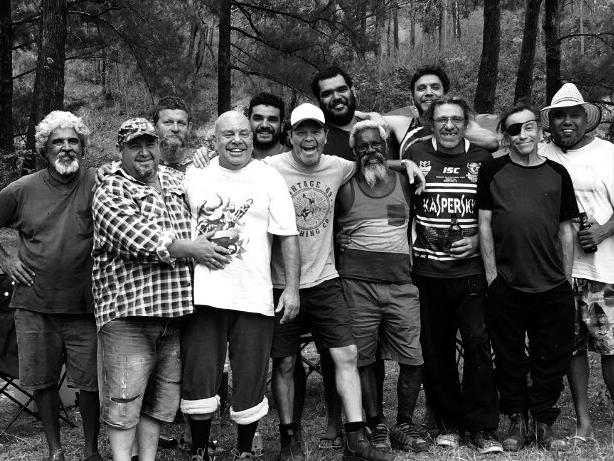
Shadows On The Hill took shape in the musician’s mind as he drove home to Brisbane, voices, words, chants and hand claps all singing to him as he tried to concentrate on the road as the heavy emotions of paying tribute to his cousin threatened to bring the tears again.
Not long before we caught up, Cassar-Daley went home to see his mum Irene and she handed him a letter written by his cousin before he died.
Shadows on the Hill may be a teaching song, a slice of oral history preserved in music but at its core, it’s a “song for Matty”.
“The letter was scribble about the song, just about the song. He said ‘I can’t stop playing it … I don’t want to spoil it by overplaying it because I’ll get sick of it but every time I start it, I’m right back there at the fire again’,” Cassar-Daley says, his voice choking and the tears spilling for both of us.
“I can’t even open the envelope again. But it was all for a reason. People need to hear this stuff, it’s in my heart to share it with everyone.
“And when we have this gathering again, we are all bringing our sons, that’s the next rite of passage for them and they can come and hear those stories and they might even cry a bit like we did.”
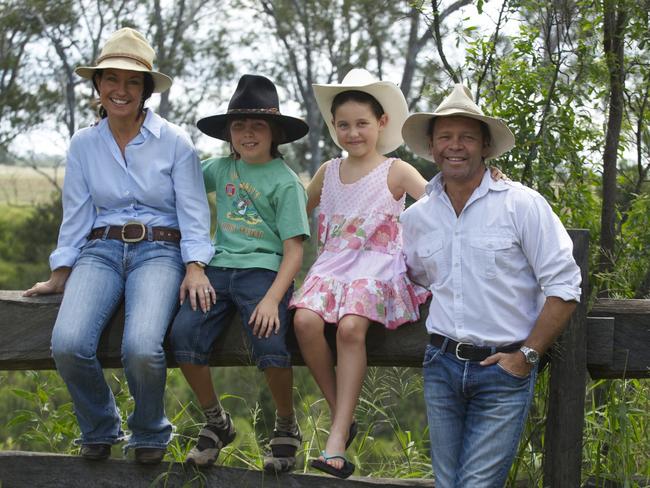
A quick change of subject is required. Bring up family to this proud, indigenous man and you will quickly score an update about how his wife Laurel and children Clay and Jem are doing.
They are all over this Greatest Hits collection too — the course of his love affair with Edwards is charted through the tracklisting. His son is following in her radio footsteps, daughter Jem is following in his, as an accomplished singer and pianist.
Cassar-Daley is quick to give his wife credit for the suggesting the career retrospective as her husband took a year out from music to help care for the family as her father struggled with illness and later passed.
“We don’t talk work much, we try not to. We used to because we were just battling our way through together,” he says.
“But one day we were sitting at home shooting the breeze about the adventure this musical career has been; radio has been her adventure too — her first week in the job she was at Abbey Road doing an interview with Brian May. We were getting quite reflective on our careers, hitting the half century mark.”
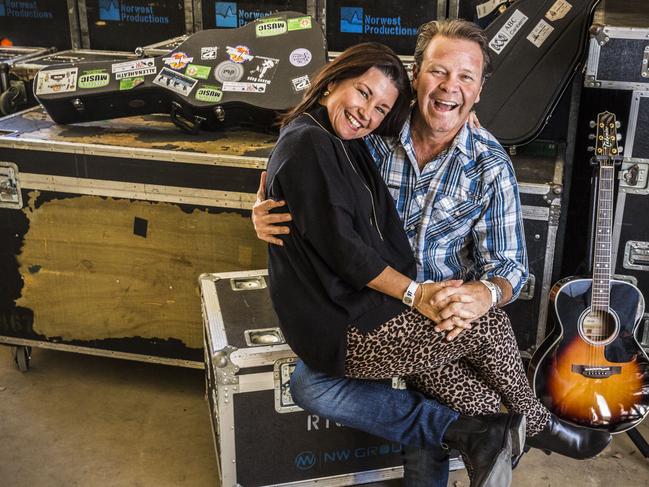
The first song to make the list was Proud Young Man, written as a teenager. It was his first independent song and he reckons it sold about 300 copies. Not all of those copies were listened to by the people who ended up with them.
“No one has that song, let alone wants it,” he says, erupting into his infectious self-deprecatory cackle.
“I went through these remote Aboriginal communities with Brian Young on tour when I was a kid and the kids were using them for frisbees because no one had a record player.
“One little kid came up and asked me to sign it and he kept the cover, took the seven inch single out and threw it, another kid picked it up and threw it back. I was devastated — that’s my art they’re chucking around.”
His debut major label single was Dream Out Loud. The label said he could choose which song he wanted to release first; he chose the song he had written about equality — “the one word I carried with me through my childhood.”
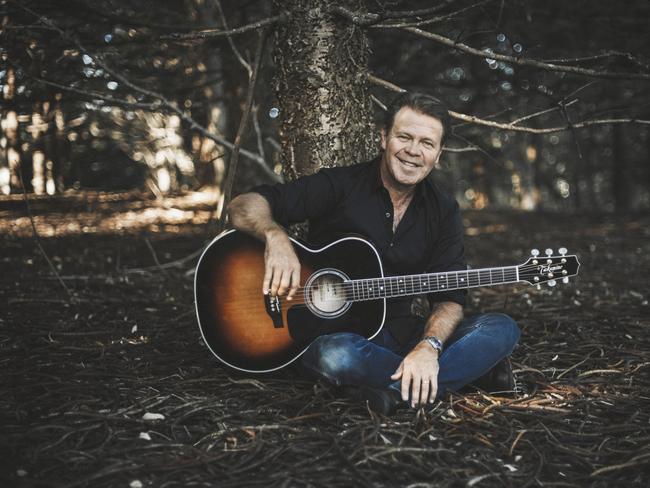
That equality is still to be realised for Australia’s indigenous people. Yet there is no doubt Cassar-Daley is considered an equal among his peers.
He has a story to tell about everyone who have shared their talents with him on the songs which define a career, which began like all good country adventures do, by busking on Tamworth’s famed Peel Street during the annual music festival.
There’s the naughty tale about the infamous “blue-flame” lighter routine he would perform for young artists who joined him on tour. Apparently Kasey Chambers still talks about the party trick.
There’s sitting opposite Paul Kelly as a young lad wanting to impress him as they worked on songs including Wish I Was A Train and Freedom Ride.
And there’s his ongoing songwriting relationship with Don Walker. Both hail from Grafton, both love cars and both love writing songs. In fact, there may be more love songs about cars than about his wife on the compilation.
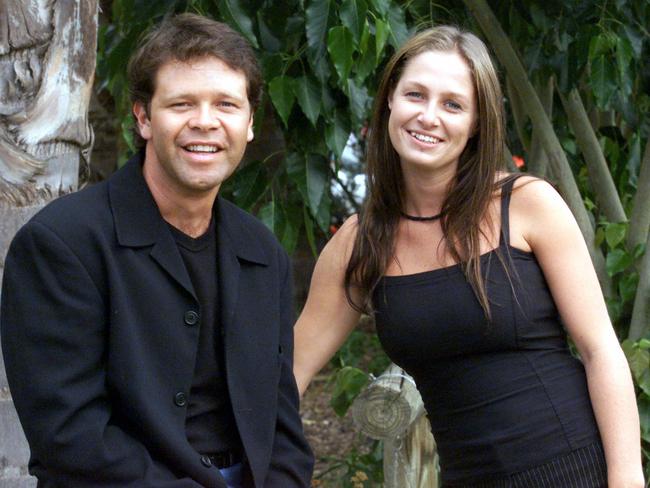
“I remember sitting with Don for the first time but he reminded me of a song that we wrote together that he released on an album called Cutting Back. The song was called I Want My Kids To Look Like You,” Cassar-Daley says.
“I honestly don’t remember writing it but he said I came in with a line that said ‘Between sad and lonely, lost and found’ and Don said “I like that and I’ve got this particularly song I would like to put this in.’
“I was about 25, writing with Don Walker. I went out and bought the record and you know what he used? The demo of him and I sitting around the piano that day.
“The other moment was when Chisel recorded another song we did together called HQ454 Monroe for their No Plan record.
“I love cars, so does Don and he had to run the lyric past Mossy because he loves cars too. Don told me he got the tick of the approval from Mossy, that all the terminology is right.
“I spent ages remembering what this particular car had, the sexiest thing I had ever seen — it was before I met Laurel, of course.”
Wouldn’t Change A Thing, which opens the collection, was composed with Greg Storer, the songwriting brother of award-winning country artist Sara Storer.
Greg is a farmer near Dubbo whose collaborators romantically describe as producing some of the best lyrics and hooks ever written in Australian country music history while working on his tractor.
This time, he and Cassar-Daley traded ideas while the musician was touring America with blues legend Joe Bonamassa as a hired guitar-slinger and Storer was on his farm.
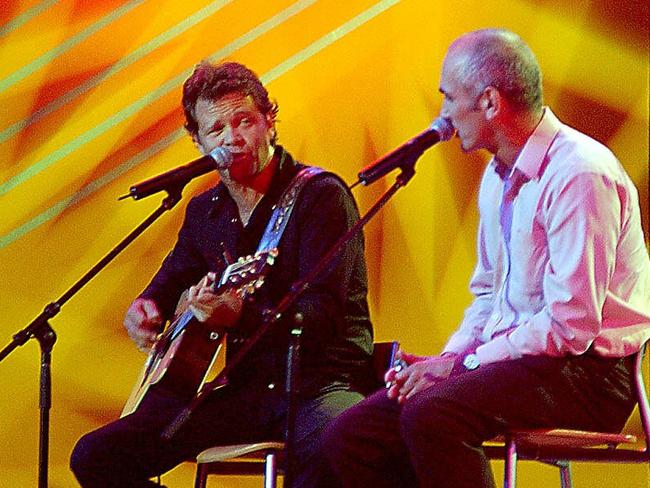
“He is a monster of a writer. He’s the real deal and I asked Sara for Greg’s number because I wanted to widen the pool a bit,” he says.
“I rang him out of the blue and told him I was keen to do some writing with him but I couldn’t get down to Dubbo and he couldn’t get away from the farm.
“So we traded some ideas via the iPhone and he gave me some beautiful things. It was like a tennis match of lyrics, he loved all the sentiments in it and we got to talking about both being in grand finals as kids and the disappointment of losing.
“That verse about not getting our glory train to happen, about how we learned how to fail came from that because I’ll never forget my coach saying as kid that ‘You didn’t win today, that’s life, leave it out there, don’t be blaming each other. You know what, you’ve learnt to fail, how’s that?’
“That’s something that sticks with you. You can’t teach failure.”
The only thing he has changed in recent times is drinking. Cassar-Daley decided to quit a couple of years ago; he simply wasn’t getting anything out of it anymore.
“I look back at all the drunken party times and I wouldn’t change any of that,” he says.
“I’d been there and done it and there were times I drank so much I thought I should be a career drinker not a musician. I was a total pisspot.
“But I wanted to let it know who was boss because for a while there, it was boss. I was laying on the beach at Noosa on holidays and I was drinking these vodkas and cranberry juice and I wasn’t getting anything out of it, not even a sting. I don’t know it was … I just peaked. I wasn’t enjoying it.”
Cassar-Daley won’t be setting up his daughter for failure when he takes Jem out on his solo tour next year.
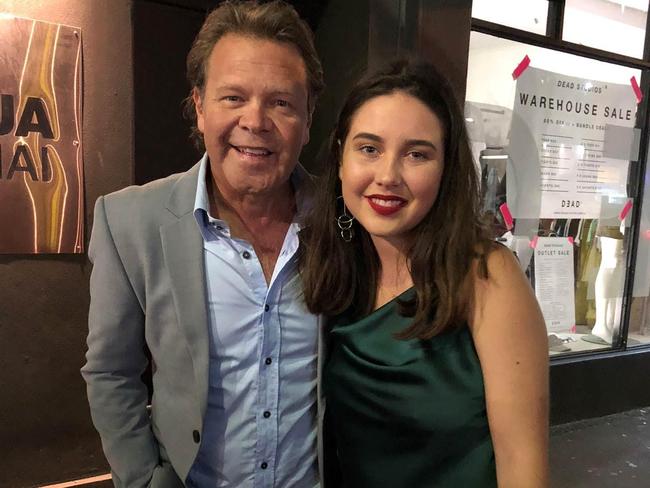
He’s going back to his acoustic roots, one man and a guitar, just like he began his career when artists like Gina Jeffreys gave him a leg up by offering him the opening spot on his national tour.
“She’s been getting gold medals at Eisteddfods at school, she’s really into it. I’m very proud but I didn’t intend to take her out on the road; she was supposed to go to uni.
“I asked her if she wanted a gap year because she’d had enough of study because her brain was fried.
“So I told her to learn a half-hour set and she could open up some shows next year. She’ll probably pop up with me on a few harmonies if that’s what she is feeling.
“And it’s really great to have your kid out there. I haven’t painted any rosy picture for her; she’ll be sharing a motel room with my manager Rox and she knows it’s long hours and a lot of travel.
“And I want her to come and look at the adventure and privilege it is to be a musician in Australia. If it was ever going to be a job for me I would have given it up years ago but I love to sing and play.”
Greatest Hits is out now. For all tour details, troycassardaley.com.au
Originally published as Troy Cassar-Daley shares the dark history that haunts his family
